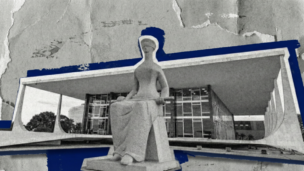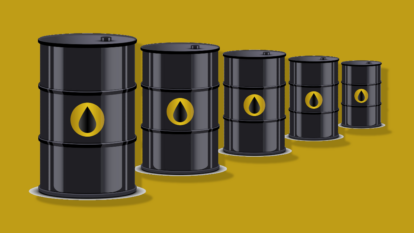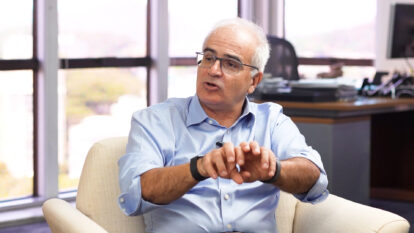Between 2010 and 2014, more than 150,000 trucks were sold annually, on average, in Brazil. For comparison purposes, in the ten previous years, that number was about 80,000/year. During those euphoric times, it was easy to buy a new truck with a sub-5% annual interest rate, while banks were paying anywhere from 7 to 12% to raise short-term deposits.
Those amazingly low interest rates were provided by the government-controlled development bank (BNDES), whose funding comes from two sources: (1) borrowings from the Treasury, which was paying market rates and bearing the spread cost; and (2) the mandatory social security fund (FGTS), which is remunerated at very low rates. In other words, the population at large was ‘giving’ vehicles to transportation companies and truckers, the same way Brazilian taxpayers were giving money to many large companies.
While those policies were in place, everyone was happy: similar subsidies were spread all over the economy; overcapacity had not yet eaten into truckers’ profits (and even if it had, they were not feeling it on a cash basis as they were selling old equipment for cash and buying new ones with minimum down payments); OEMs and parts suppliers were enjoying huge profits; and, adding insult to injury, the government-controlled Petrobras was selling fuel at subsidized prices.
But the seeds of a huge problem were being planted by the governing party.
The crisis came. Brazil’s GDP plunged in 2015/16. President Dilma was impeached and Vice President Michel Temer (from another party) took over with no popular support. Despite this, he put in place a pragmatic economic team that ended a lot of subsidies, drew money out of BNDES, tried (unsuccessfully) to reform the public pension system, and placed professional management teams at government-controlled businesses. Petrobras subsidies were discontinued, and gas and diesel prices started to fluctuate according to international oil markets. None of this is to particularly defend this government, those actions were just obviously needed, no big merits here.
Now, when the country was just starting to recover and getting ready to choose another President, international oil prices triggered a big fire. Truckers’ margins are obviously under pressure after a huge increase in supply was followed by a recession. To anyone with a minimal understanding of how competitive markets work, it is obvious that diesel prices are not to blame – the truckers associations had been complaining and demanding help from the government way before the recent episodes. Diesel prices were just the spark. Organizing themselves through WhatsApp groups, truckers went on a hugely successful strike that brought chaos to the whole country. There were shortages of food and fuel, and production lines stopped.
Socialist and populist thoughts, which are embedded in our nation’s conscience, along with a lot of misinformation, led many Brazilians to support the truckers’ strike. Many genuinely think the government should be held accountable for fuel prices, after all, “The oil is ours” (a famous phrase used by the populist Getúlio Vargas in the 50s). Others just got into the wave, mixing truckers’ selfish goals with generalized anger towards politicians. In sum, a large part of the population stood behind the idea that all of us should again take money out of our pockets (through taxes elsewhere) to help truckers, which is not only absurd by itself, but further compounded by the obvious fact that pushing diesel prices down won’t make trucking more profitable.
Pressured and in despair, the government decided to “solve” the crisis that was caused by the 2010-14 subsidies by — can you guess? — giving more subsidies. Brasília negotiated with truckers’ leaders to subsidize diesel prices. This will cost billions to an already strained budget. Moreover, truckers got the government to agree on establishing minimum freight prices, to be enforced all over the country – a surreal move tantamount to a cartel chartered by the government. The first price-tables already drew protests from the agricultural sector and industrial groups; further negotiations are underway.
Subsidies beget trouble, which begets more subsidies and so on. Minimum prices giving truckers guaranteed good profits will simply lead more people into trucking, more companies and farmers into buying their own trucks, and eventually to truckers running out of freight to carry. Then what? Another strike? Guaranteed wages for truckers? More taxes to pay for that?
Truckers are right to complain that they pay high taxes while driving in poorly maintained roads; just as everyone is right about calling for better public health services. But these complaints should be done in a civilized manner, preferably by voting for better candidates, and without mixing rightful demands that are in the interest of the overall population with some specific groups selfishly asking the government to solve their economic problems; the latter just leads to a larger government, more taxes, more inefficiencies, and less prosperity.
Margaret Thatcher withstood coal union strikes in the 80s to reshape her country, which grew much more prosperous afterwards. Brazil needs a strong, pragmatic and capitalist government that can break through our socialist mindset and withstand the pressure until the results of a freer capitalist system begins to appear, people get wealthier and support it. That is why we must work to spread libertarian and pragmatic ideas as much as possible. This new kind of government will only come by if we make it happen. It is our responsibility in the end.
Guilherme Partel is a partner at Nebraska Capital, a Porto Alegre-based asset management firm.












